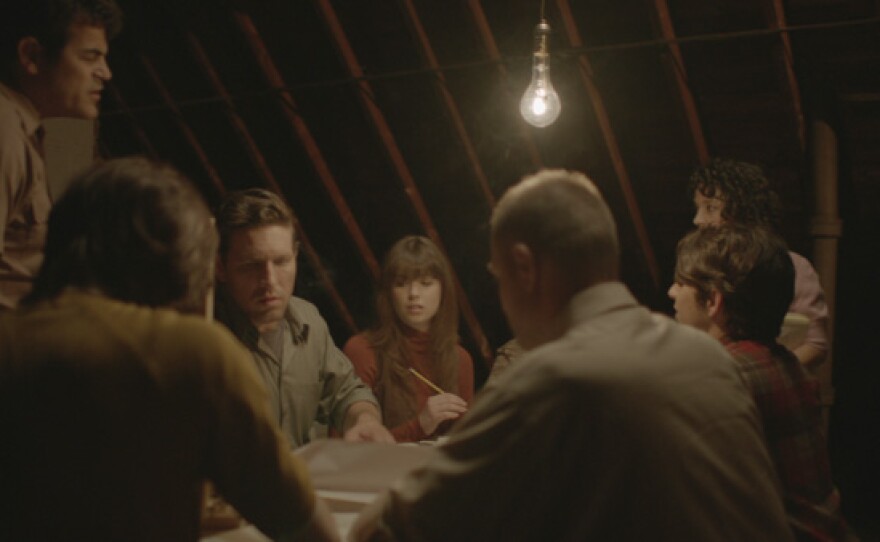This acclaimed Emmy Award-winning anthology series features documentaries and a limited number of fiction films united by the creative freedom, artistic achievement and unflinching visions of their independent producers. INDEPENDENT LENS features unforgettable stories about a unique individual, community or moment in history. The series is supported by interactive companion web sites and national publicity and community engagement campaigns.




1971 Pop Quiz
Test your knowledge about all the things that were happening in America in the year 1971, from politics to music, movies to sports. The more far out your score the more groovy you are, man.
Related Links
Related article: LA Times: For the subjects of ‘1971,’ being Snowden before Snowden by By Stephen Zeitchik
Related article: LA Times: ‘1971’ recalls burglary that birthed America’s ‘big brother’ By Kenneth Turan
"1971" - On March 8, 1971, a band of suburban parents, university professors and community leaders broke into a small FBI field office in Media, Pennsylvania, just outside Philadelphia. Calling themselves the Citizens’ Commission to Investigate the FBI, the eight activists took hundreds of secret files and shared them anonymously with select members of Congress and the news media. By doing so, they uncovered evidence of the FBI’s vast and illegal regime of spying on and intimidating American citizens.
Despite one of the largest investigations ever conducted, the FBI never solved the mystery of the break-in, and the identities of those responsible remained a secret — until now. For the first time, the members of the Citizens’ Commission have spoken out. "1971" is their story. Directed and produced by Johanna Hamilton, the film premieres on INDEPENDENT LENS on Monday, May 18, 2015 on PBS.
On the night of the “Fight of the Century” boxing match between Muhammad Ali and Joe Frazier, the Citizens’ Commission picked the lock on the door of the Media field office, loaded every file they could find into suitcases and walked out the front door. The heist yielded a trove of evidence proving that the FBI was deliberately working to intimidate civil rights activists and nonviolent Vietnam War protesters, among others. The most significant revelation was that of a massive illegal domestic surveillance program, overseen by FBI director J. Edgar Hoover, known as COINTELPRO.
Weaving exclusive interviews with national news coverage of the burglary and dramatized scenes of the events, "1971" unfolds with the tension of a suspense thriller, with haunting echoes of today’s questions of privacy in a new era of government surveillance.
Participants (in alphabetical order):
- Bill Davidon was the mastermind and de facto leader of the Citizens’ Commission to Investigate the FBI. He died in 2013.
- Keith Forsyth took on the role of master lock picker for the Citizens’ Commission during the planning of the burglary.
- David Kairys, a professor of constitutional law at Temple Law School, is a leading constitutional scholar and civil rights lawyer. He has represented the Citizens’ Commission to Investigate the FBI in secret for more than 40 years.
- Betty Medsger was a reporter at The Washington Post and one of five people who received the first copies of FBI files distributed anonymously by the Citizens’ Commission. She is the author of "The Burglary: The Discovery of J. Edgar Hoover’s Secret FBI," published in 2014.
- Bonnie Raines cased the inside of the FBI office, providing invaluable intelligence as the Citizens’ Commission planned the break-in.
- John Raines was a member of the Citizens’ Commission and drove one of the getaway cars. He also planned the distribution of documents to Congress and the press following the break-in.
- Bob Williamson was a member of the Citizens’ Commission and offered comic relief during the 1971 burglary.
Past episodes of INDEPENDENT LENS are available for online viewing. INDEPENDENT LENS is on Facebook, Instagram, and you can follow @IndependentLens on Twitter.
Protecting Anonymity
"1971 filmmaker Johanna Hamilton joins The Burglary author Betty Medsger and Citizen Four director Laura Poitras to discuss the measures Medsger and the Washington Post took to protect the anonymity of their sources





